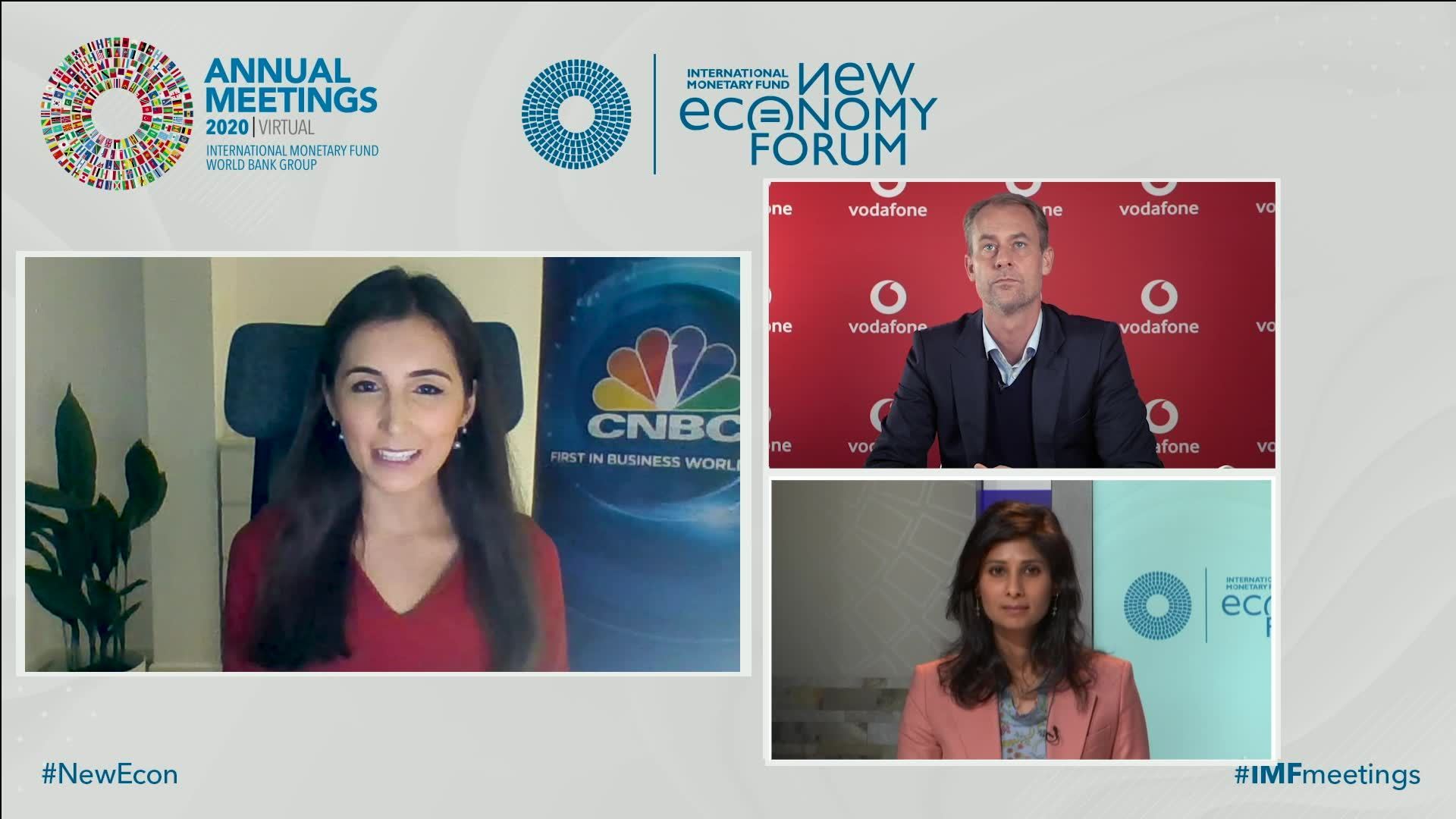Women and youth are facing the hardest impact from the Covid-19 crisis, but there are ways to target support directly to them officials from the IMF and Vodafone explained Tuesday (October 20th)
Using mobility data from Vodafone, the IMF has traced the crisis’ impact from the home to the workplace. That ‘Big Data’ from Vodafone of stringently anonymized customer activity during shutdowns helped visualize that women in particular were staying home and taking care of children and family.
In a discussion moderated by CNBC’s Silvia Amaro on Tuesday, October 20, IMF Chief Economist, Gita Gopinath, and Vodafone’s Group External Affairs Director Joakim Reiter looked at what the data shows about which groups have been more affected by the lockdowns and offered policy advice on how governments and corporations can come together to climb this long uneven ascent.
Gopinath pointed out that this crisis hit women and workers in the informal sector the hardest and stressed on the importance of providing women with income support to make sure the crisis’ impact on them doesn’t leave an everlasting mark.
“This crisis has hit women particularly hard to them, many more in the informal sector. And that's why even in low income countries have been very hard hit. It's very important, again, to provide women with the income support to make sure that this crisis doesn't become a permanent impact on their livelihoods, to provide them with the right skills and right platforms that they need to move towards growing sectors. So, these kinds of measures would be needed. And again, like I said, we have to continue the progress that we are making in terms of providing more opportunities to women,” said Gopinath
Gopinath also gave policy recommendations on what needs to be done to help make this crisis less uneven and help the unemployed transition into new sectors.
“There is a lot that needs to be done. Firstly, it's very important to provide a strong social safety net to protect people who are losing their jobs. But it's also very important to provide opportunities to the unemployed to transition into the new sectors. And this would require providing training to acquire the new skills. And secondly, it's also important to provide parental leave to both men and women so that when schools are closed, both of them have an equal share in childcare responsibilities. So, these kinds of measures will help make this crisis less uneven and its impact on the young and women,” said Gopinath
Reiter argued that the COVID crisis exposed the fragility and uneven distribution of digital infrastructure across the world. He also recommended that to even out this divide governments and corporations need to work together.
“I think one of the lessons from the COVID crisis is clear, which is the essential nature that digital infrastructure as well as digital services, has played in maintaining some form of normality under rather unprecedented circumstances. However, we are dealing with some very significant divides in our society, and this divide requires government and industry to come together to overcome. One of them is the fact that many of our citizens remain unconnected, which means that their access to education or e-learning platforms, their access to health care, and formal e-health has not existed for those that are clearly not connected. And that's a very significant proportion of the world population. But we also have a number of other things that we're expecting and hoping that both the industry and the governments can come together,” said Reiter
To watch the full conversation, click here.

